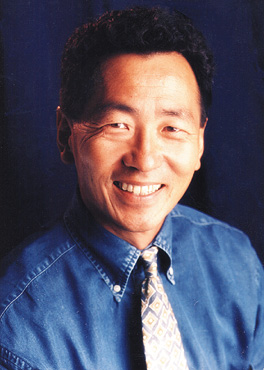|
ASIAN AMERICAN BUSINESS |
CONTACT US
|
ADVERTISING INFO
© 1996-2013 Asian Media Group Inc
No part of the contents of this site may be reproduced without prior written permission.
MICROSOFT'S ASIAN PIONEER
PAGE 7 of 10
GS: Did you have any personal conflicts?
Oki: Not really. I think he was very disappointed when I decided to retire.
GS: What was the reason for your deciding to retire at the tender
age of 43?

Oki: During the 10 years I was at Microsoft, a number of things happened. I got married, I had two kids. In the early years of Microsoft... Hell, the first three years, I worked every day--never took a day off. Well, I took one day off in three years. You can't do that, work 100-hour weeks. I suppose you can if you don't want a family life, but having started the family, it became fairly important. It got to the point where if I was late at the office, I'd feel guilty about not being home, and when I was home, I was feeling guilty I wasn't in the office. I just have a very strong management philosophy called management by example. If I expect my people to work 100-hour weeks, I should be in there working 100-hour weeks.
GS: At a point, you were generating more profits from international operations than US operations.
Oki: Absolutely, there's no question about that.
GS: Can you give us the numbers for say back in 86 when you were moved home to head up marketing?
Oki: I can't give you absolute numbers, but I can give you the reason why that statement is true. The OEM business was largely offshore and the OEM business was hugely profitable. We're talking about before-tax profit margins of 60%, and higher. It was just obscenely profitable. Most of those volume deals were with offshore manufacturers from Japan and Europe.
[CONTINUED BELOW]
GS: This is packaged software that would be sold in boxes on shelves, not stuff in corporate computers?
Oki: It was a little of both. It was both the operating systems you would have OEM license agreements with, but also we were very successful in getting the international PC manufacturers to also license our applications like Multiplan and Word and Chart, and ultimately Excel. We were able to get them to license at royalty rates an order of magnitude higher than what we could get in the United States.
GS: Why bring you to the states when you were doing so well overseas?
Oki: The states was not profitable, and [there were] huge problems. He wanted me to fix them.
GS: What were the biggest problems you dealt with?
Oki: It all starts with people. One of the benefits I had with international was that I hired everyone. I made sure they were smart, I made sure that they had a very high work ethic, I made sure they were passionate about what they were doing. I made sure they were totally committed to the mission of Microsoft. Inheriting a division that was really floundering, you have whole different set of variables to work with. It really is kind of fixing some very major problems. When I inherited the division we had 26 sales offices in the U.S. I ended up closing half of those, laying off a lot of people, firing a lot of people, just basic restructuring.
GS: Sounds like you werenÕt doing marketing so much as being the COO [chief operating officer].
Oki: Absolutely, very similar to international. I was the guy that was running things in the U.S. from a sales and marketing standpoint. PAGE 8
| "When I inherited the division we had 26 sales offices in the U.S. I ended up closing half of those, laying off a lot of people, firing a lot of people, just basic restructuring." |
